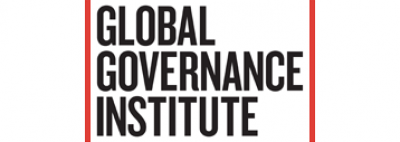On the Ethics of Philanthropy
15 April 2015
Corina Campion (MSc Global Governance and Ethics) on a GGI panel discussion with Andre Heller Perache, Clare Matterson, Avia Pasternak and Rob Reich.

The vision which animates international development assistance can be located in recognition of the gap between what we want the world to look like, and how it actually is. Philanthropy is therefore conceived as an 'engine' of global justice.
In 2011, OECD countries officially committed $134 billion to international development. However, private actors have become increasingly prominent in development assistance efforts; according to the Hudson Institute, between 2008 and 2011, the world-wide private philanthropy figure stood at around $60 billion.
It is clear that global philanthropy plays a very important role in international development. Indeed, it has the capacity to eradicate human poverty and to improve standards of living around the world. Whilst these initiatives are highly commendable and very much needed on the ground, several ethical dilemmas present themselves in assessing activities driven principally by private funds. Most notable is the question of to whom NGOs are accountable, their donors or the beneficiaries of their activities? This "two constituencies problem" becomes all the more challenging given the growing influence of private actors in this domain. For instance, the Catholic Church is the largest private provider of HIV/AIDS treatment in the world, but its stance against condom use raises a dilemma as to whose wishes take precedent, Catholic believers? The donors? Or the view of the individuals they are seeking to assist?
This panel discussion, hosted by the Global Governance Institute, brought together academics and practitioners to exchange their views on the global governance of philanthropy and the ethical challenges surrounding private donations.
Professor Rob Reich from Stanford University brought to our attention some of the philosophical provocations focusing on public morality. Political philosophy, as opposed to moral philosophy which questions individual preferences and what donors should or should not support, instead aims to answer a different set of questions. Firstly, what should the state promote when it comes to the democratic scrutiny of private power? Philanthropy, after all, is not just an exercise in individual liberties. Tax reductions accrued on private donations clearly has important implications for the public purse. Moreover, big philanthropy is an exercise in power; it operates in a world with little to no formal accountability apparatus. Secondly, and related to this discussion, what mechanisms can overcome the democratic or legitimacy deficit posed by private philanthropy? Public bodies such as The Charity Commission in the UK and the Department of the Treasury's Office of Foreign Assets Control (OFAC) in the US provide a good starting point for regulating the financial flows that come in and out of charitable organisations. They cannot, however, intervene on operational programmes or accountability procedures. Professor Reich finished with an interesting thought: "Is global philanthropy for global justice an oxymoron?" Philanthropy might be capable of improving welfare, but simply repairing without building or consolidating appropriate oversight mechanisms does little to advance a global justice cause. Instead we enter into a more parasitic scenario.
Clare Matterson, Director of Strategy at the Wellcome Trust outlined the incredible history of the organisation that today spends about £20 million/day delivering investment for research in science, the humanities and social sciences, and in public engagement. This funding is grounded in expert peer review, and designed with a policy-outcome perspective from the outset. In terms of governance, the Trust operates under a constitution and various conflicts of interest policies, while accountability is maintained with respect to the Board of Governors and the Charity Commission. As a result, recipients seem to be a rather passive actor in this equation.
Médecins Sans Frontières (Doctors Without Borders) has a track record of rejecting particular sources of funding, including donations from the Gates Foundation, The US Government, extractive companies, and arms manufacturers, in an effort to avoid perceived or actual political or economic favour. Most of its funding comes from private donations, while only 10% of staff on the ground are international, with the rest of the work being carried out by locals, as explained by Andre Heller Perache, UK Head of Programmes. MSF is accountable solely to its doctors on the front line, who are themselves guided by medical ethics. The recent kidnapping of five MSF staff is emblematic of this policy, with all emergency work in the country halted as a result. MSF is acutely aware that the situation in Syria requires one of the biggest mobilisations of humanitarian assistance in the history of the organisation. However, good stewardship of resources and the personal safety of its staff must come first.
The reality of charitable organisation impact may therefore fall somewhat short in terms of closing the gap between aspiration and reality on the ground. This insightful discussion begs the question: can our efforts ever be sufficient in the absence of long-term policy continuity and robust public goods monitoring structures? Given that the hunger and suffering observed on a global scale is often the result of human (in)action, perhaps global philanthropy can only aspire to be remedial and humanitarian in effect. Transformation of public governance at all levels may be the crucial additive to ensure actors - public or private - are enabled to truly advance global justice.
 Close
Close


